KSysGuard/zh-cn: Difference between revisions
Appearance
m Created page with "默认的<menuchoice>全部进程</menuchoice>视图会给你一份按照字母排序的所有运行的程序列表。点击任何列的标题会以此列排序。如果你有一..." |
m Created page with "{|class="tablecenter" |thumb|300px|进程字母排序||thumb|300px| 树形视图 |}" |
||
| Line 25: | Line 25: | ||
{|class="tablecenter" | {|class="tablecenter" | ||
|[[Image:Ksysguard2.png|thumb|300px| | |[[Image:Ksysguard2.png|thumb|300px|进程字母排序]]||[[Image:KsysguardTree.png|thumb|300px| 树形视图]] | ||
|} | |} | ||
Revision as of 14:33, 17 November 2010
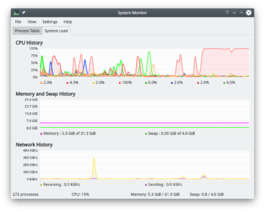 |
追踪控制系统进程. |
概述
系统监视器(KSysGuard)设计成无需使用者特别设置即可进行简单的进程控制 - 默认的通常完全够用。有两张工作表 - (上面是图表)和。
系统负载
屏有3个显示图表,每个分别描绘如下负载要素 - 「CPU历史」,「内存和交换文件空间历史」,「网络历史」。如果你悬停鼠标指针到每个部分的,你会看到带有颜色的详细分析。
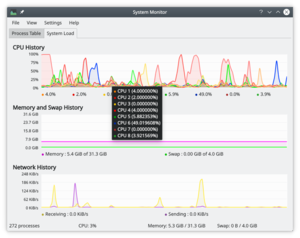 |
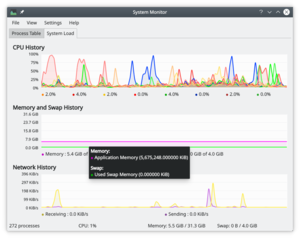 |
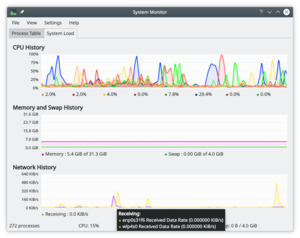 |
进程表
默认的视图会给你一份按照字母排序的所有运行的程序列表。点击任何列的标题会以此列排序。如果你有一个runaway进程(这种进程陷入无限循环,不停派生出子进程),你会发现视图最有用。你也能选择用「拥有者」或「程序」查看进程的子集。
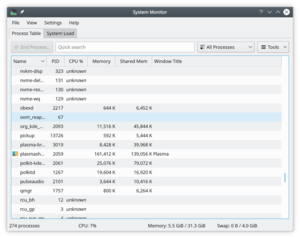 |
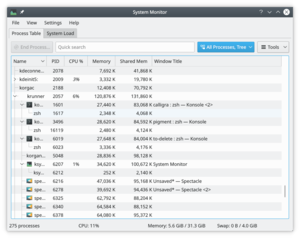 |
Hints and Tips
Ctrl + Esc brings up the Processes part of KSysGuard, which is very helpful when you are trying to find which application is using too many resources.
In KRunner (Alt + F2 or from a right-click on the desktop) there is a tiny icon to the left of the entry bar - it looks like a microwave oven - that also brings up the Process Table.
